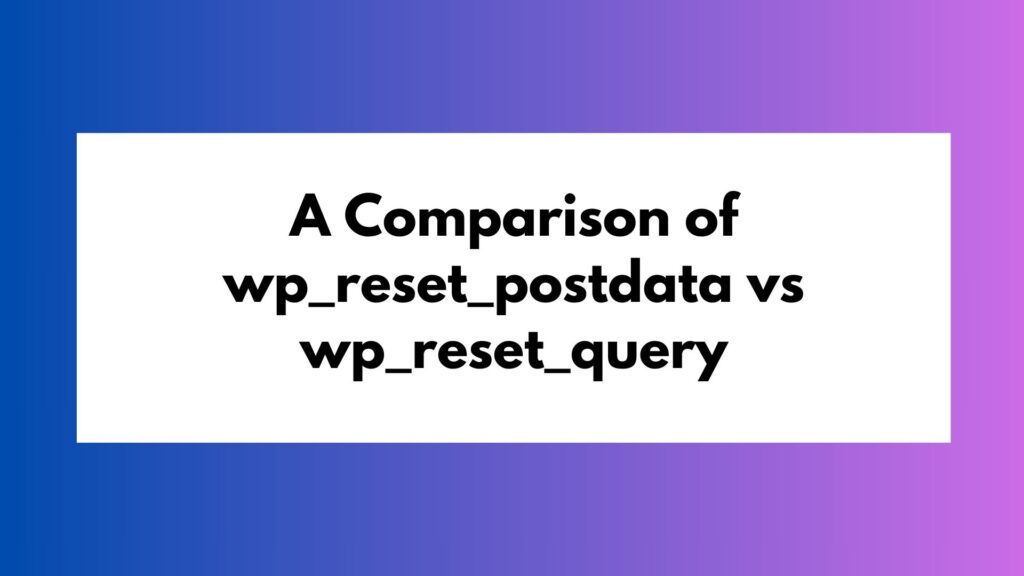
To obtain the archive page link in WordPress, you can utilize the get_post_type_archive_link() function for post types, get_tag_link() function for tags, or manually construct the URL using the relevant taxonomy slug.
In WordPress, archive pages serve as a valuable means to organize and display content based on various criteria such as post types, tags, and custom taxonomies. Obtaining the link to an archive page plays a crucial role in navigating and sharing these pages effectively. In this article, we will explore different methods to obtain the archive page link in WordPress, covering post types, tags, and custom taxonomies.
Table of Contents
Method 1: Post Type Archive Page Link
To obtain the archive page link for a specific post type, you can utilize the get_post_type_archive_link() function. This function retrieves the link for the archive page of a given post type. Here’s an example:
<?php $post_type = 'your_post_type'; $archive_link = get_post_type_archive_link($post_type); echo 'Post Type Archive Page Link: ' . $archive_link; ?>
Replace 'your_post_type' with the actual slug of your desired post type. The get_post_type_archive_link() function will then return the corresponding archive page link.
Method 2: Tag Archive Page Link
Tags in WordPress also have their own archive pages. To obtain the link to a tag’s archive page, you can use the get_tag_link() function. Here’s an example:
<?php
$tags = get_the_tags(); // Get all tags assigned to the post
if ( $tags ) {
$tag = $tags[0]; // Choose the first tag, you can change the index as needed
$tag_id = $tag->term_id; // Get the term ID of the tag
$archive_link = get_tag_link( $tag_id ); // Get the tag archive page link
echo 'Tag Archive Page Link: ' . $archive_link;
}
?>
In this code snippet, we start by using the get_the_tags() function to retrieve all the tags assigned to the post. We then check if there are any tags available using an if statement. If tags are found, we proceed to select the first tag by accessing it with an index of 0. You can modify this index to select a different tag if needed.
Next, we extract the term ID of the chosen tag using $tag->term_id. The get_tag_link() function is then used to retrieve the link to the tag’s archive page by passing in the term ID as an argument. Finally, we display the obtained tag archive page link using echo.
Method 3: Custom Taxonomy Archive Page Link
Custom taxonomies in WordPress, such as categories or custom created ones, also have their own archive pages. To obtain the link to a custom taxonomy’s archive page, you can manually construct the URL using the relevant taxonomy slug. Here’s an example:
<?php
$taxonomy = 'your_taxonomy';
$term = 'your_term_slug';
$archive_link = home_url('/' . $taxonomy . '/' . $term);
echo 'Custom Taxonomy Archive Page Link: ' . $archive_link;
?>
Replace 'your_taxonomy' with the actual slug of your custom taxonomy and 'your_term_slug' with the slug of the specific term you want to link to. By combining these values with your website’s base URL using home_url(), you can construct the archive page link.
Conclusion
n conclusion, obtaining the archive page link in WordPress depends on the specific type of archive you are looking for. By utilizing the appropriate functions such as get_post_type_archive_link() for post types or get_tag_link() for tags, you can easily obtain the archive page links. Additionally, for custom taxonomies, manually constructing the URL using the relevant taxonomy slug is an effective approach.
By following these methods, you can effortlessly navigate and share archive pages in your WordPress website. Remember to replace 'your_post_type', 'your_taxonomy', or 'your_term_slug' with the actual slugs relevant to your specific use case.





